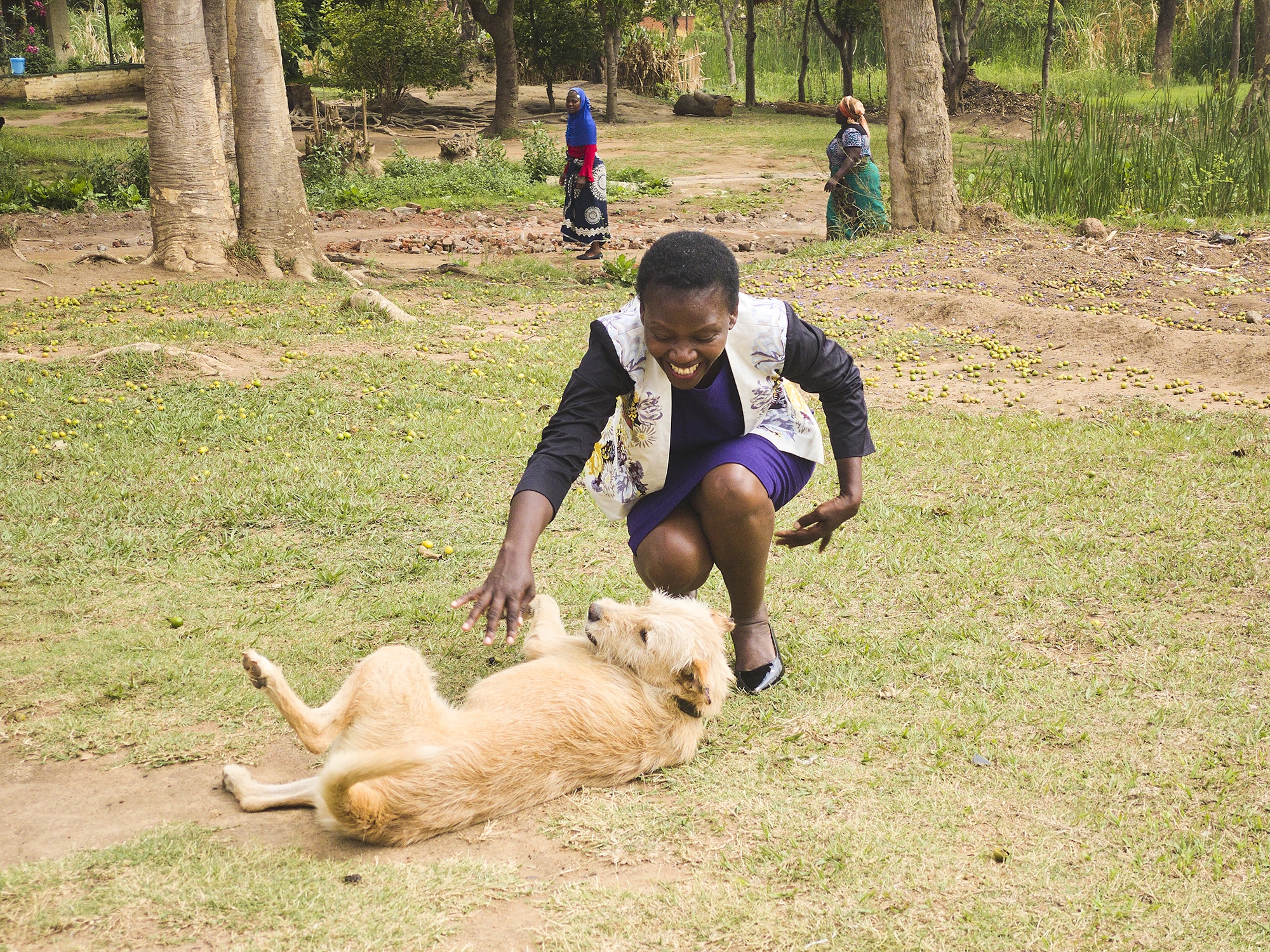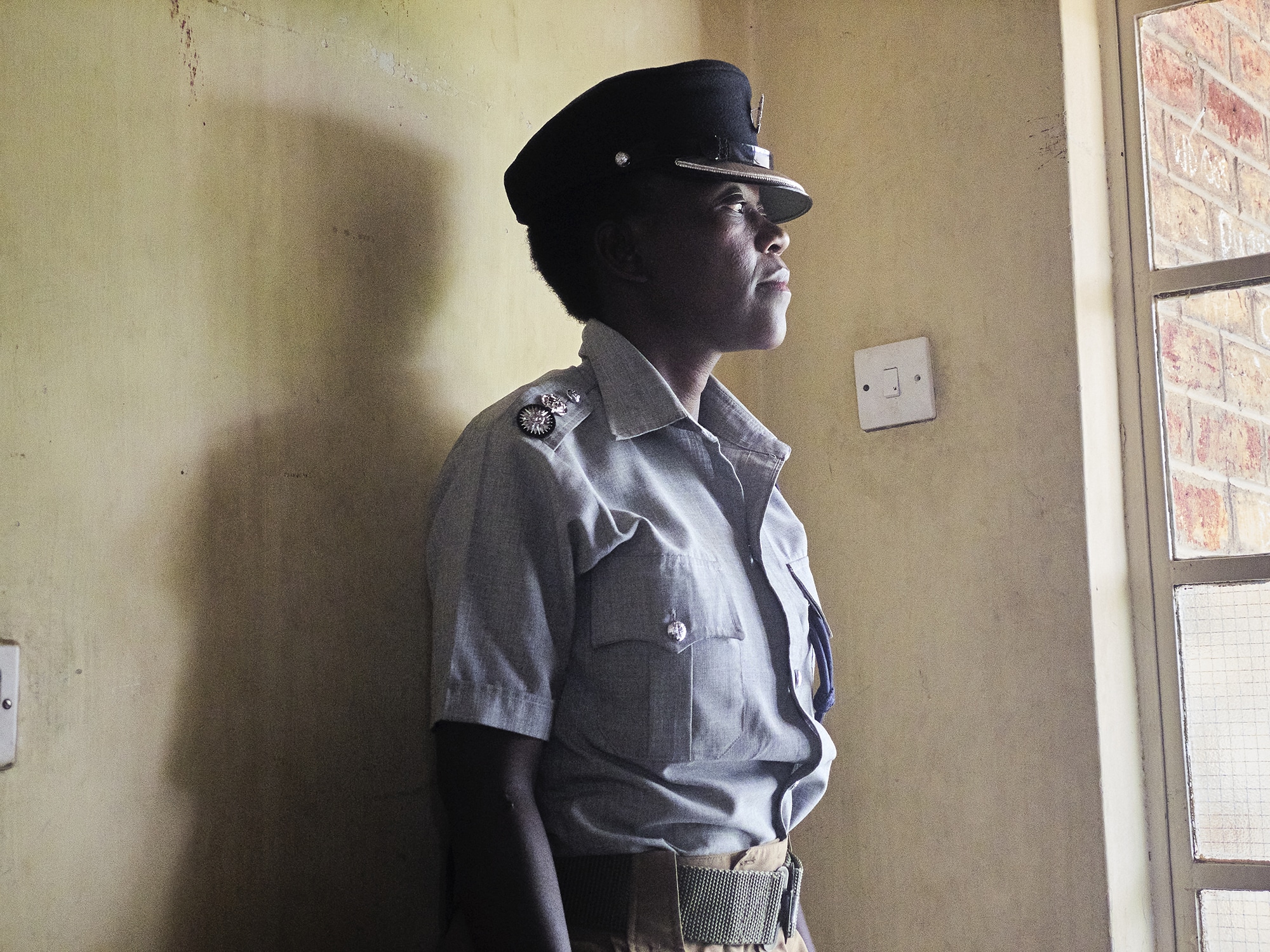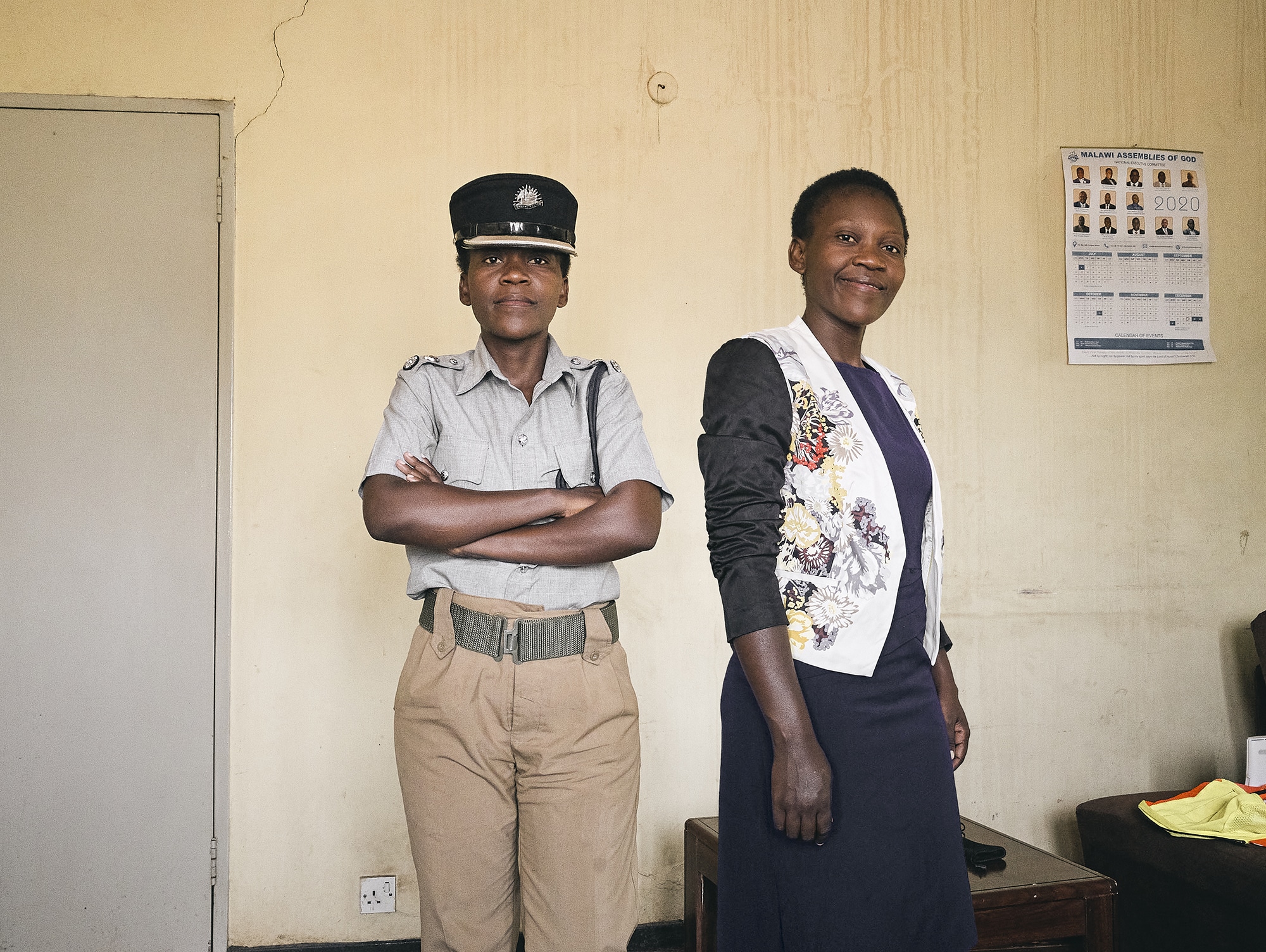Safe Journeys: Mable Chawinga
Safe Journeys is a new series that unveils the humanity behind public safety, as men and women share their journey of protection, empathy, resilience and who they are beyond the badge.
Oct 10, 2023

Hear Mable's views on developing peacekeeping & meditation initiatives
MC: We grew up as orphans, our mother died at 5 years old and our father left soon after. My sister took the role of Mum and Dad. She was so intelligent but didn’t go far with school, she supported us, got a job. When I was young I wanted to be a teller in a supermarket but my sister said no, you need a job that makes you think; you have the talent, you have a critical mind, you won’t enjoy being a teller.
At first the Malawi Police Service said I was too short, they wouldn’t take me in. But I kept pushing and eventually I got a letter saying they had changed their minds. My sister died soon after I graduated from police training school, but she’d set me on the right path by then.
I’ve had to fight for things for my whole life. Fighting for my rights and my basic needs. I was due money after the death of my mother, I needed it for school fees and uniforms, but my Uncles wanted to take it. So, I had to move away on my own. I had to fight for my place at secondary school, I said ‘give me a place I am an orphan’. In the end they decided, ‘this child is so troublesome, let’s just let her in’.
That’s how my life has been, always pushing. In the Malawi Police Service also, I went back to school, got an education to Masters level. Then I get promoted, again people say, ‘how did you do this?’
My life has been full of wonders. But I still get frustrated. Wherever I’m posted I make sure I have impact. I make sure I develop some initiative that makes a change at that place – ‘Mable is here, this has happened because of her.’ I want to be the Inspector General of Police one day, I’m still fighting on.
My passion now is in helping the Police Service solve crime not by using guns, but by using mediation. Women have traditionally been sidelined in most security activities, but they can be good at conflict resolution. I’m reaching out to female pastors, pastors’ wives, chiefs and chiefs’ wives and trying to get funding to train them in mediation.
After work I do my own business; ordering things, selling things. I run a farm with my Aunt, we grow maize, groundnuts and soya beans. All the women from the village surround me in the fields, I’m a farmer, we talk and laugh. We had a huge harvest last year, so I bought a car and a small supermarket to sell our produce.
I have three sons between 9 and 15 years old and I’m always thinking, how can I invest for them? I train them and tell them, life can change, life can be anything. I teach them how to run a business, how to associate with the right people who can help you grow.
Robbery with violence has been a big problem here, caused by poverty and laziness. Young men don’t want to do farming, they migrate from their village, come to town and find there is nothing to do. Unemployment levels are huge. They resort to robbing from people, money and phones, if they leave you alive you are lucky.
I want to show youths that their lives don’t have to be like that, they can go another way. So, I’m starting a Peace project using drama and poetry to inspire young people and change attitudes. It’s how I can contribute to my country.


